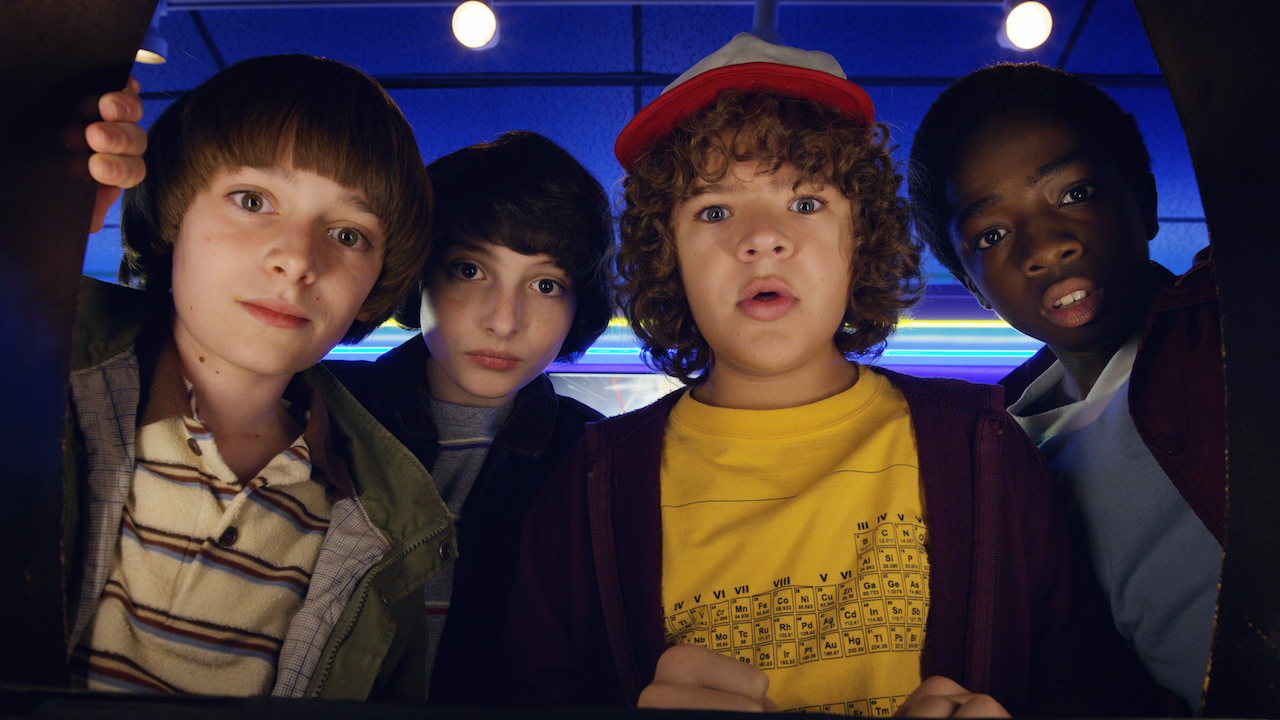With USS Callister, Black Mirror season 4 proves it understands video games better than anything else on television
Exploring the curious case of Black Mirror’s love-hate relationship with video games
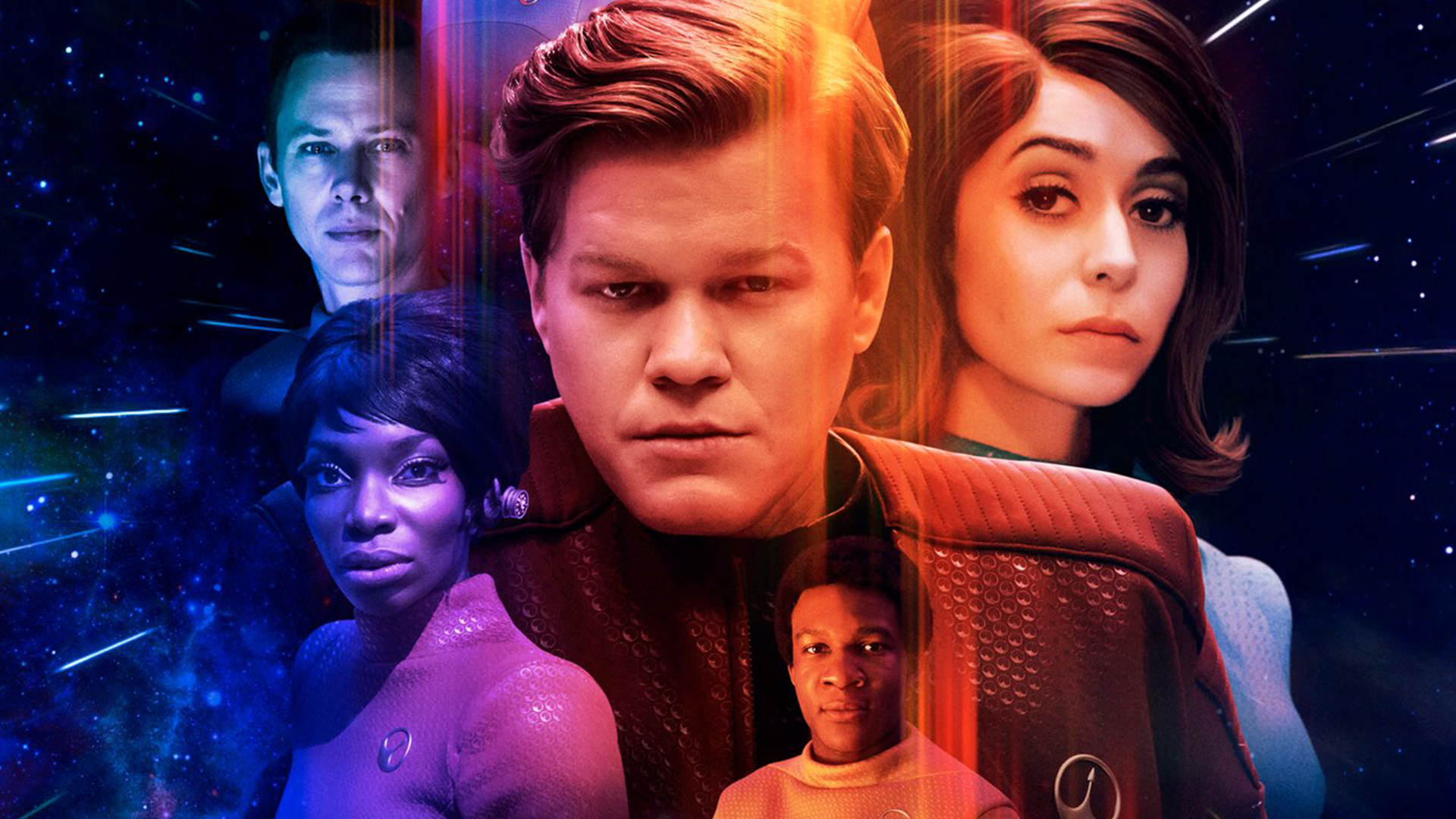
It’s either a shrewd spot of meta satire or a deeply unsettling coincidence that the first episode in Black Mirror season 4, set in a fully immersive video game parody of Star Trek, was released only a few months after the launch of an actual Star Trek VR experience - Ubisoft’s Star Trek: Bridge Crew. Yet, funnily enough, that immediate resemblance tells you all you need to know about where the spotlight is pointed for USS Callister.
Black Mirror’s depiction of virtual reality Trek may be a much darker and more technologically advanced fabrication compared to the real thing, but seeing as showrunner (and video game fan) Charlie Brooker co-wrote the episode only a short time after Bridge Crew was announced, it’s hard not to imagine him chuckling away while considering all the black comedy that could be wrung from a dystopian hyperbole of the game’s central premise.
Even outside of the obvious comparisons to Bridge Crew, though, USS Callister feels like Brooker’s treatise on the state of video games in today’s landscape of ever accelerating technology, acting as both a celebration of their potential and a warning against the way we use them.
It’s a persuasive argument for the uninitiated and a cautionary parable for the hobbyists all at once but, more than that, coming after season 3’s Playtest (and, to some extent, San Junipero), the episode cements Black Mirror as a show which understands video games in a way that few others do.
While the rest of television too often falls into the lazy trope of presenting games as nothing more than a frivolous pastime relegated to the domain of archetypal nerds and nobodies (The Big Bang Theory, South Park, The I.T. Crowd), Black Mirror continues to explore the medium with much needed poise and perceptivity.
Virtual insanity
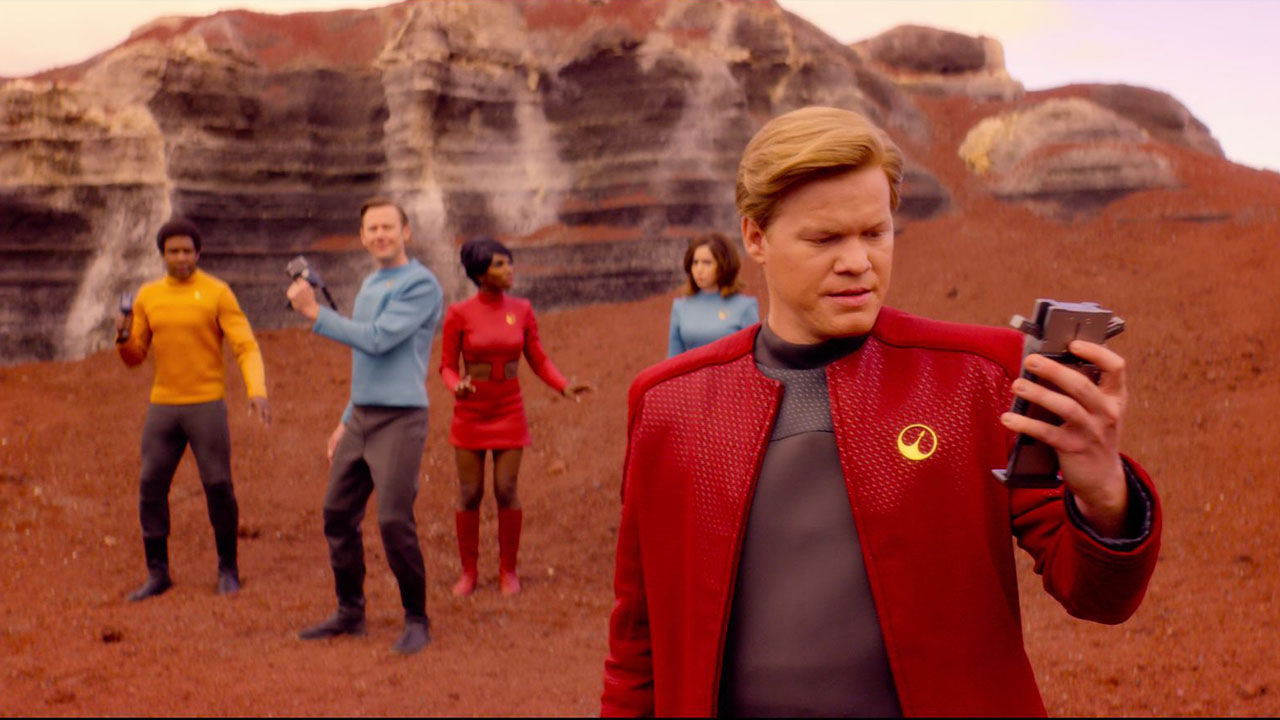
In USS Callister, developer Robert Daly (Jesse Plemons, who looks loads like Matt Damon) spends his free time commandeering a space fleet in his own private prototype of the sci-fi MMO game he’s famous for creating, Infinity. Nothing particularly unusual about that, so far.
The Black Mirror flavoured kicker is that Daly’s crew are all made up of digital (yet fully sentient) clones of his work colleagues, who he’s virtually imprisoned by harvesting their DNA, forcing them to role-play as his obedient and sycophantic subordinates. “It’s a bubble universe”, explains Jimmi Simpson’s character to Cristin Milioti’s newly uploaded clone, “ruled by an asshole god.”
Weekly digests, tales from the communities you love, and more
Already, this uniquely sinister scenario sets the stage for Brooker and co-writer William Bridges to bring myriad topical issues into focus, from the dominance of the male perspective in pop culture to the dangers of online echo chambers. But it’s the episode’s dealings with the nature of video games that draws out USS Callister’s most observant commentary.
The “asshole god” comment, for example, is more than just a coy reference to god games like Dungeon Keeper or The Sims, but reflects the episode’s wider metaphor for the way in which games often establish unfair power dynamics between different players online, or indeed between the main player and other AI characters.

Whether you’re playing in a private Battlefield server under the strict jurisdiction of a punitive host, or being griefed by a domineering and petulant stranger in DayZ, most of us have been on the receiving end of such dynamics at some point in our gaming history. While Daly’s assertion of his power comes across as much more intense and horrific than what players might typically experience during a game, that’s only because, in his world, the virtual technology is as authentic and lifelike as reality itself.
"USS Callister might just be the most technophilic Black Mirror story yet."
“Quite often in our stories we explore what happens when a normal, flawed human being is given some sort of immense power by technology” said Brooker in a recent interview with GQ, and while video games may only offer virtual power for now, USS Callister asks how that power might become more significant (and more dangerous) as the lines between reality and virtuality continue to be blurred.
Despite his mild mannered behaviour in the real world, Daly turns into a cocky, misogynistic bully as soon as he enters Infinity, fetishizing an imaginary lifestyle in the only place he knows he has absolute control over. The game is an outlet for his frustration, then, but it’s also a lawless space for him to indulge in his darkest fantasies without consequence; the kind of environment that’s conducive to the displays of aggression which we see him committing against his crew.
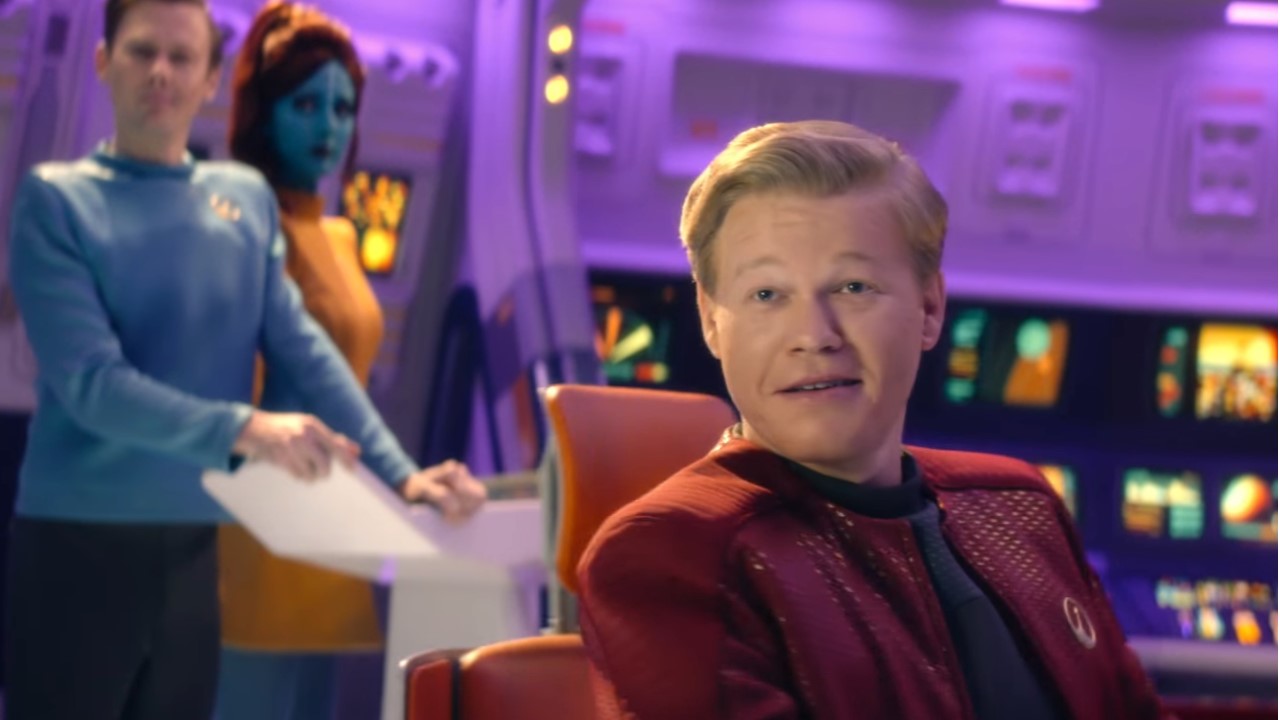
There’s plenty to be said about the positive implications of using video games as a form of escapism, but what happens to someone when that escapism starts to become a replacement for their own reality? USS Callister offers an extreme but nonetheless pointed answer to that question with the case of ‘Captain Daly’, who clearly enjoys his life as an abusive tyrant in Infinity more than his meek existence as a sidelined CTO in the real world.
At the moment, it all might sound as though USS Callister is nothing but a damning condemnation of the very existence of video games, but it’s worth remembering that Brooker is a lifelong gamer himself, and the episode’s critiques are ultimately made out of a desire to improve an art form that it visibly expresses a tender appreciation for. In fact, USS Callister’s overall message is one of great love for the medium, in spite of its ongoing growing pains, and nowhere is there more proof of that than in its uncharacteristically optimistic ending.
To infinity and beyond
After escaping Daly’s server and entering the full, online world of Infinity, the cloned crew couldn’t be more elated for what awaits them. “We’ve got an infinite, procedurally generated universe at our disposal” says Diagnostics Officer Dudani. Yep, they’re stuck in a futuristic version of No Man’s Sky meets Elite: Dangerous (with a sprinkling of Mass Effect), and even as they flee from their first encounter with another player (voiced by Jesse Plemons’ fellow Breaking Bad alum Aaron Paul), the episode’s final scene is one of excitement and promise.
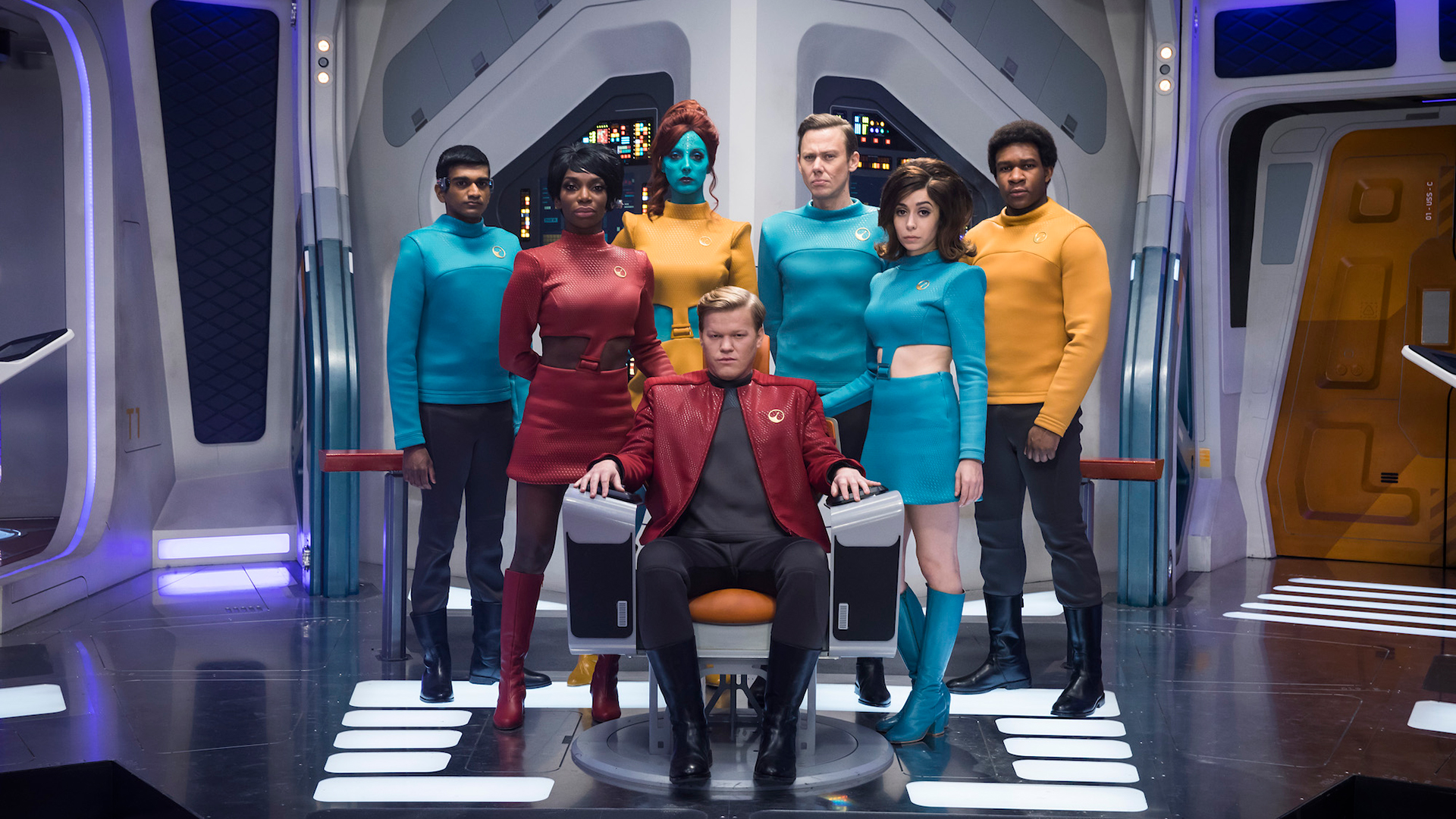
This is no longer Daly’s world of exploitation and inequality, but a liberated playground of adventure and sociality, where each crew member is allowed to express themselves and interact with one another in a healthier, happier environment.
The subtext couldn’t be clearer. Black Mirror may be chastising the kind of play represented by Daly’s regressive universe, one built on sentiments of prejudice and dogmatism, but it screams “yes please” to the idealized opportunities posed by a game like Infinity.
If USS Callister’s story is saying anything, it’s that, once the selfish and narrow-minded values epitomised by Daly are out of the picture, games have the potential to flourish into the kind of bright, expansive canvas for play that’s teased by the episode’s cheering denouement. It might just be the most technophilic Black Mirror story yet.

Alex is a former Features Writer at GamesRadar, which once made him responsible for gracing the internet with as many of my words as possible, including reviews, previews, interviews, and more. Lucky internet!
